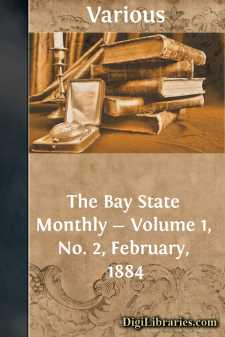Categories
- Antiques & Collectibles 13
- Architecture 36
- Art 48
- Bibles 22
- Biography & Autobiography 816
- Body, Mind & Spirit 145
- Business & Economics 28
- Children's Books 17
- Children's Fiction 14
- Computers 4
- Cooking 94
- Crafts & Hobbies 4
- Drama 346
- Education 58
- Family & Relationships 59
- Fiction 11834
- Foreign Language Study 3
- Games 19
- Gardening 17
- Health & Fitness 34
- History 1378
- House & Home 1
- Humor 147
- Juvenile Fiction 1873
- Juvenile Nonfiction 202
- Language Arts & Disciplines 89
- Law 16
- Literary Collections 686
- Literary Criticism 179
- Mathematics 13
- Medical 41
- Music 40
- Nature 179
- Non-Classifiable 1768
- Performing Arts 7
- Periodicals 1453
- Philosophy 66
- Photography 2
- Poetry 897
- Political Science 203
- Psychology 45
- Reference 154
- Religion 516
- Science 126
- Self-Help 85
- Social Science 82
- Sports & Recreation 34
- Study Aids 3
- Technology & Engineering 59
- Transportation 23
- Travel 463
- True Crime 29
Our website is made possible by displaying online advertisements to our visitors.
Please consider supporting us by disabling your ad blocker.
The Bay State Monthly - Volume 1, No. 2, February, 1884
by: Various
Categories:
Description:
Excerpt
Hon. ALEXANDER HAMILTON RICE, LL.D.
By Daniel B. Hagar, Ph.D.
[Principal of the State Normal School, Salem.]
Massachusetts merchants have been among the most prominent men in the nation through all periods of its history. From the days of John Hancock down to the present time they have often been called by their fellow-citizens to discharge the duties of the highest public offices. Hancock was the first governor of the State. In the list of his successors, the merchants who have distinguished themselves by honorable and successful administrations occupy prominent places. Conspicuous among them stands the subject of this sketch.
Alexander Hamilton Rice, a son of Thomas Rice, Esq., a well-known manufacturer of paper, was born in Newton Lower Falls, Massachusetts, August 30, 1818. He received his early education in the public schools of his native town and in the academies of the Reverend Daniel Kimball, of Needham, and Mr. Seth Davis, of Newton, a famous teacher in his day, who is still living, in vigorous health, at the venerable age of ninety-seven years. As a boy, young Rice was cheery, affectionate, and thoughtful, and a favorite among his companions. His earliest ambition was to become a Boston merchant. After leaving school he entered a dry-goods store in the city. He there performed his duties with such laborious zeal and energy that his health gave way, and he was compelled to return to his home in Newton, where he suffered many months' illness from a malignant fever, which nearly proved fatal. About two years later he returned to Boston, and entered the establishment of Messrs. J.H. Wilkins and R.B. Carter, then widely known as publishers of music books and of dictionaries of various languages, as well as wholesale dealers in printing and writing papers. Three years of service in their employ laid the foundation of the excellent business habits which led to his ultimate success.
During this time he was a member of the Mercantile Library Association, in company with such men as Edwin P. Whipple, James T. Fields, Thomas R. Gould, afterward the distinguished sculptor, and many others who were, active participants in its affairs, and who have become eminent in literature or in public life. Young Rice was a careful student in the association, though sharing less frequently in its exercises than some others. His decided literary tastes finally led him to resolve upon the enlargement of his education by a collegiate course of study. He accordingly entered Union College, Schenectady, New York, then under the presidency of the venerable Dr. Eliphalet Nott, where he was graduated in 1844, receiving the highest honors of his class on Commencement Day. His classmates bear testimony to the fact that his career in college was in the highest degree honorable to himself and to the institution of which he was one of the most respected and popular members.
At the time of his graduation his purpose was to study law and to pursue it as a profession; but soon afterward delicate health interposed a serious obstacle, and a favorable offer of partnership in business with his former employers induced him to join them in the firm which then became known as Wilkins, Carter, and Company, the senior member of which was a graduate of Harvard College, and, at one time, a member of its Faculty....












